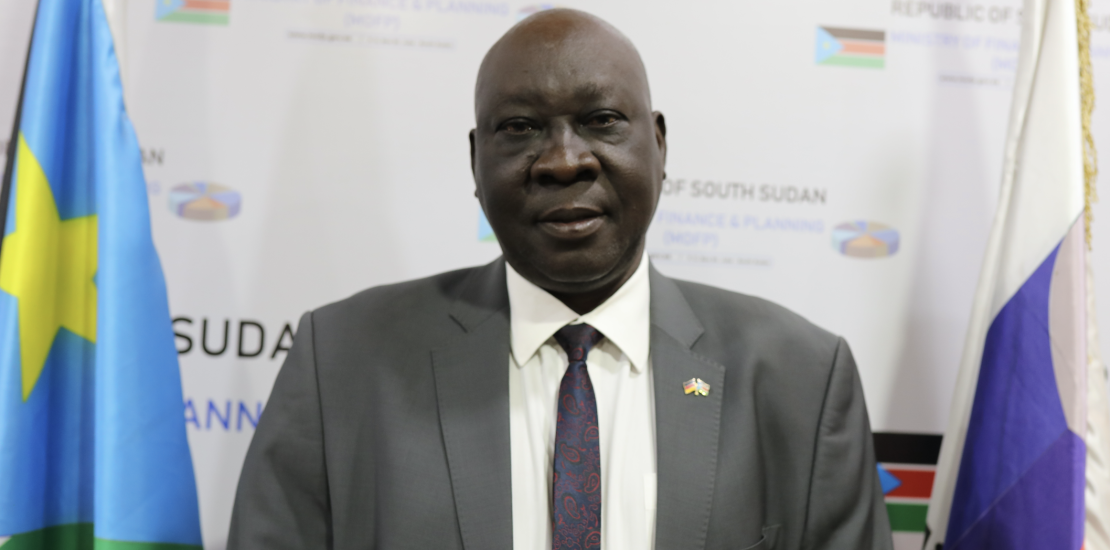- May 17, 2023
- Posted by: admin
- Category: Column

By Kuyu Dhel
In line with the continental agenda in improving Food and Nutrition Security in Africa by 2027, the Dakar 2 Summit was organized in the Republic of Senegal with co-funding from the African Development Bank, the main theme of the summit was feed Africa through Food Sovereignty and Resilience. Furthermore, the summit focuses on bringing different actors to develop constructive approaches for establishing an action agenda by the member states, private sector, and others, in order to meet some of the commitment made by the same actor to achieve SDG2 “Zero hunger by 2030” in Africa
The Republic of South Sudan was represented by Hon. Dr. Dier Tong Ngor Minister of Finance and Planning as the head of the delegation, and Hon. Josephine Lagu Yanga Minister of Agriculture and Food Security as well as Hon. Johnny Ohisa Damian Governor of Bank of South Sudan. The delegation also included media team and technical advisors from the three institutions outlined above.
The summit, which took place at Abdu Dioff International Conference Centre in Dakar started on 25th January 2023 and ended on the 27th January 2023; the three days summit was hosted by H. E. Macky Sall the president of the Republic of Senegal and the current Chairman of the African Union.
During the summit the heads of states or their representatives at high level made the commitments to achieve food sovereignty and resilience in their counties despite the challenges of climate change. The delegates worked out a comprehensive financing framework for Food and Agriculture Delivery Compacts to achieve zero hunger in the continent by 2027.
The war in Ukraine has set back the global response to the recovery from the COVID 19 pandemic, the conflict has directly affected food and energy prices, trade, and agriculture as well as raising inflations worldwide. Most of the African countries are depending on supply of inputs such as fertilizers from Russia and wheat from Ukraine, therefore any shortage in fertilizer supply to the farmers in Africa will have a negative impact in the level of production and productivity, however, some countries in the content are coping with this situation for example Zimbabwe has achieved self-sufficiency in terms of wheat production and according to H.E. President Emmerson Mnangagwa his country is now in a position of producing fertilizer locally, since all the elements for manufacturing of fertilizer are available in the country, on the other hand it will reduce the import of fertilizer from Russia and other countries.
South Sudan Agriculture and Food Delivery Compact
The implementation of compact will contribute directly to increase production and productivity, which in turn will reflect in improving food and nutrition security in the country. However, the focus of Ministry of Agriculture and Food Security in regards to Agriculture delivery compact is to transform the agriculture and livestock sectors to become the driving force for sustainable production system for inclusive growth and economic diversification that can contributes to the national Gross Domestic Product (GDP). The team from the Ministry of Agriculture and Food Security and the supporting agencies in the Republic of South Sudan work out a constructive plan for effective and efficient implementation of compact South Sudan, this has that resulted in prioritization of specific commodities to achieve high level of food sufficiency in the country by 2027, and these include Sorghum, Rice, Sesame and Fisheries, those targets will be realized through expanding the areas under cultivation, effective means of suppling the essential inputs, best agronomic practises as well as adoption of best technologies for post-harvest management. Ministry of Finance and Planning of Republic of South Sudan will work closely with the supporting agencies and the concern ministries for smooth implementation of the planned projects related to compact
Climate Smart Agriculture and Food delivery compact
Looking at the current threat and challenges of the climate change the agricultural sector and other livelihood activities to be improved in order to meet the highest demand of food and nutrition security. South Sudan has to take positive measures and approaches into consideration to confront the negative impact of climate change, on the other hand conservation approaches must be adopted for adequate and efficient utilization of resources, this could be realized by access to new environmentally friendly modules and technologies to sustain production and productivity cycles by 2027.
Currently, climate change has become a real global phenomenon; there is an urgent need for establishment of climate-smart agriculture practices at all levels, provision of clean energy solutions as well as transformative adaptation, on the other hand this would mean promotion of improved crop diversification, adoption of resistant seeds varieties, improve breeds of livestock that suit the climatic change, provision of community-based climate sensitive agriculture extension services, and sustainable water management system across the country.

